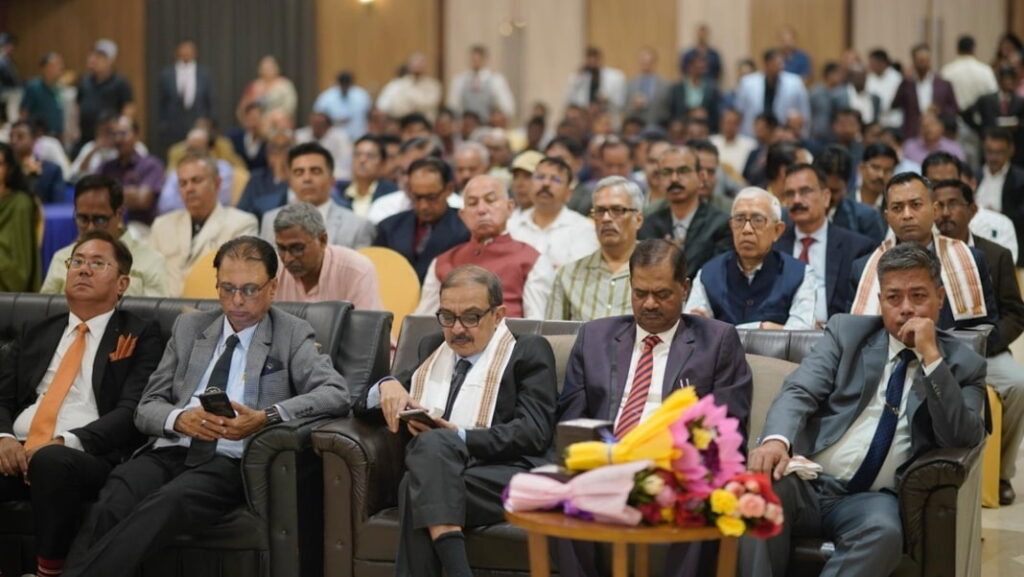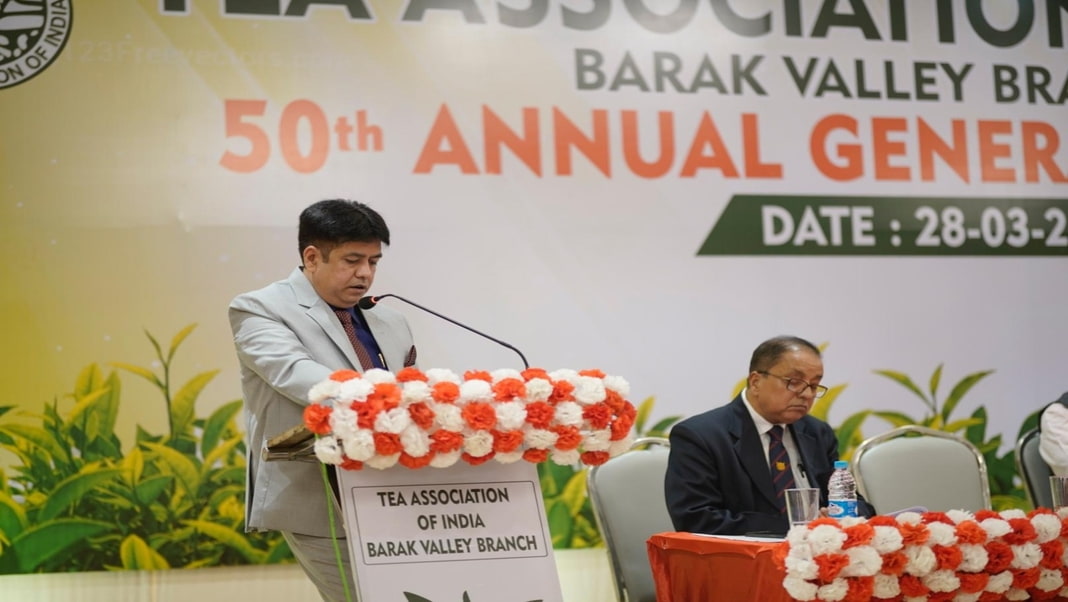Guwahati, March 28: The tea industry in Assam’s Barak Valley is on the brink of a severe crisis, with declining productivity, rising costs, and infrastructural challenges threatening its very survival. This alarming assessment was made by Sushil Singh, chairman of the Barak Valley Branch of the Tea Association of India (TAI), at the association’s 50th Annual General Meeting (AGM) held at Cachar Club, Silchar, on Friday.
Singh painted a grim picture of the industry, stating, “We stand at the edge of uncertainty, where the tea industry in Assam, particularly in Barak Valley, is on the verge of almost terminal decline.” Despite India’s impressive 7.6% GDP growth, the tea industry in this region remains stuck in a paradoxical struggle, requiring urgent introspection and intervention, he noted.
The total tea production in Barak Valley in 2024 stood at 39.32 million kg, showing negligible growth from 39.18 million kg in 2023. This pales in comparison to 56.26 million kg produced in 2003, highlighting a steady decline over the last 15 years.
The average cost of production in the valley has risen to ₹200 per kg, while the industry struggles to fetch only ₹165-₹175 per kg, leading to sustained financial losses for tea gardens. In contrast, the Assam Valley region produces 2,200 kg per hectare, whereas Barak Valley yields only 1,100 kg per hectare.
Singh attributed this low productivity to ageing tea bushes, high vacancy rates, and poor bush frames, which require urgent replantation and rejuvenation. However, financial constraints have stalled replantation efforts, and Singh urged the Tea Board to provide financial support for replanting initiatives.
He said tea wages in Barak Valley have jumped 204% from ₹75 in 2014 to ₹228 in 2023, with a 13.15% compound annual growth rate (CAGR). However, tea prices have only grown at a 5.8% CAGR, putting immense pressure on estate owners.
He also said prices of essential inputs like fertilizers, coal, and pesticides have surged by 7-14% over the past decade, further increasing production costs.
Singh said unprecedented levels of absenteeism—exceeding 50% in some estates—have disrupted operations, forcing gardens to explore expensive alternatives, such as hiring temporary labour.
To counter labour shortages, Singh suggested gradual mechanization, which could enhance efficiency and sustain production even with reduced manpower.
Singh stressed the urgent need for better road networks, citing National Highway 44’s frequent landslides, which make tea transportation difficult and costly.
Barak Valley tea gardens suffer from 40% power unavailability, forcing them to rely on expensive diesel-generated electricity. This adds 10-12% to production costs, reducing competitiveness.
Singh warned that climate change poses a serious risk to tea production, with erratic rainfall, droughts, and soil erosion affecting yield. He called for integrating tea estates with national irrigation schemes like Pradhan Mantri Krishi Sinchayee Yojana (PMKSY) to ensure water security.
Moreover, illegal land encroachments and unauthorized constructions are creating additional challenges. TAI has engaged district authorities to crack down on illegal occupation of tea estate lands, but stronger enforcement is needed.
To clear statutory liabilities and ensure working capital, Singh urged the Tea Board to provide interest-free soft loans to struggling estates.
He called for tea manufacturing units to be declared eco-friendly and exempted from hefty pollution control levies.
With rising debts, dwindling profits, and structural weaknesses, the future of the Barak Valley tea industry is at stake. The Tea Research Association (TRA) and industry stakeholders must collaborate to address climate challenges, promote irrigation, and implement replantation programs to prevent irreversible decline.

The AGM was attended by key stakeholders, including Prabir Kumar Bhattacharjee, Secretary General of TAI, Assam Minister Kaushik Rai, and Major General Namibier from the CIJW School, emphasizing the urgent need for collective action to rescue the region’s tea industry.
Also Read: Centre approves funds for over 6000 smartphones for Meghalaya’s Anganwadi workers
Also Watch
Find latest news from every corner of Northeast India at hubnetwork.in, your online source for breaking news, video coverage.
Also, Follow us on-
Twitter-twitter.com/nemediahub
Youtube channel- www.youtube.com/@NortheastMediaHub2020
Instagram- www.instagram.com/ne_media_hub
Download our app from playstore – Northeast Media Hub





